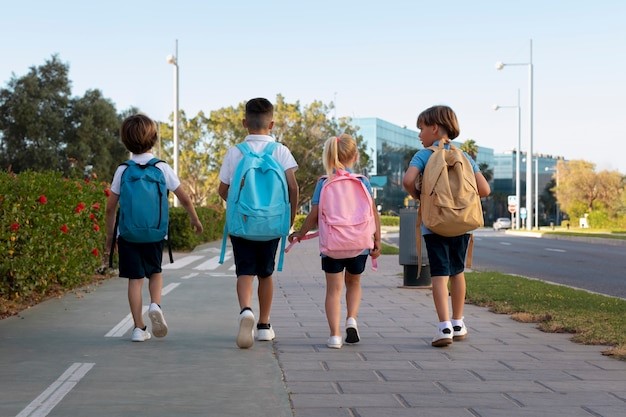DESPITE LOW SPEED LIMITS and parking and other regulations, children are still being injured in and around schools. It’s up to every one of us to keep them safe.
When you’re in or around a school zone, everyone – from toddler to senior citizen – needs to be aware of the risks that go with using our roads.
Every child needs to learn how to use the roads safely, whether walking or cycling, and later when driving. But road collisions remain a leading cause of accidental death for children, and we know they can cause life-changing injuries. That’s why it is so important for us all to take responsibility – not just for our own safety but for the safety of any children who share the roads with us – and find ways to reduce the number of deaths and serious injuries.
We encourage all parents, guardians, teachers, carers and older siblings to play their part in helping children to use the roads with respect, to recognise the risks they face and to understand effective ways of minimising those risks.
Reduce the risk
There are a number of simple ways we can all reduce the risk, and potentially save a life.
- Try not to use the car for the school run. For some parents it’s essential, but for many others there are healthier alternatives. Find out about any local safe walking initiatives that may operate at your child’s school. Team up with neighbours and walk together.
- It’s cool to be bright: kit your kids out with reflective belts, bags, keyrings or slapbands, or choose coats with fluorescent piping.
- If you have to drive to school, allow plenty of time to park safely and legally. Don’t pull up on zig-zag lines outside a school, and respect local residents by not blocking driveways and access points.
- Respect speed limits. Many areas around schools are subject to 25km/h speed limits (either permanent or timed), and you will face a large fine and points on your licence if you are caught speeding.
- Do your bit to help the crossing patrol. Be patient and always be prepared to stop. Remember, it’s an offence not to stop at a patrol’s signal.
- If you drive older children who don’t need escorting into the school premises, make sure they get out of the car in a safe location, and never let them step out into the road instead of the pavement.
